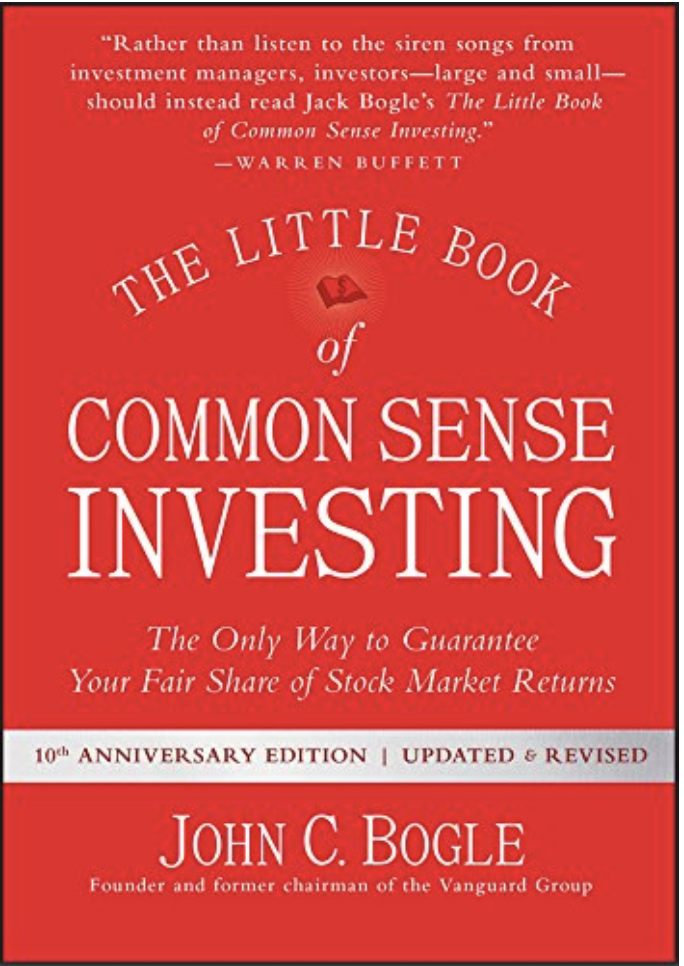
Book Review: 'The little book of common sense investing'

It’s a book given by a friend a few years ago when I started dipping my toes into the stock market. I was bewildered by the infinite stock options and volatile price changes and had no idea of value investment at all, so my friend gave the book to me as a beginner guidance into this adventurous world full of greed, fear and discipline. Unfortunately, I didn’t read the book at that time, instead I was lured by the fleeting and random gains and decided to play it my own way. Thankfully, I didn’t have much asset at disposal 😛. Over the years the book had been forgotten until recently I tried to find some light reading. Though I am already familiar with the ideas discussed in the book after years of self-study on investment, still I wish I could have read the book at the time it was given to me and I might have made different decisions and have a possibly distinct financial situation today.
John C. Bogle was the founder of The Vanguard Group and was credited with creating the first index fund. The key idea advocated by him in the book is that ordinary investors without sufficient knowledge on companies/finance/stock market should consider investing in low-cost index fund (passively managed) rather than mutual fund (actively managed) in a long term. As data from the past few decades has shown that, 1) By the universal Regression to Mean (RTM) rule, the group of actively managed mutual funds with relatively higher returns would eventually return to industry average or below as time passes by, ending up having similar returns as passively managed index funds; 2) Fees charged by actively managed mutual funds, taking into account of cost compounding effect, makes the mutual funds often underperform index funds. The fees include but not limited to expense ratio, sales charges, tax subject to high turnover rate, etc. 3) Performance of mutual funds in the past is not an indicator of future.
To reason that the strategy of investing in low-cost index fund should be a common sense, Bogle resorted to “the relentless rules of humble arithmetic” by showing abundant empirical evidence in statistics and charts. Personally, I feel the argument and evidence are convincing enough for me to recognize the strategy as a common sense. It has become a routine of me to carefully check the costs when considering new mutual fund products. However, the strategy that “prefers index fund over mutual fund” is subject to the US stock market, it might NOT be applicable in other countries like China.
I strongly believe that learn how to responsibly and strategically manage personal asset should be an important part of the school education system. Unfortunately, most people self-learned the lesson only after already suffering some losses and some may even never learn it. For the past few years, I have been learning those topics from different channels, one of my frequently checked resource is CNBC Make It, which covers a wide range of money-related topics (earn, spend, investment, debt, startup, side hustles, etc). I am a big fan of the column Millennial Money, which shows how young people working in different jobs, earning distinct ranges of salaries are spending their money. Maintaining a good relationship with money is a lifetime lesson, may we all have patience and wisdom to make it.
